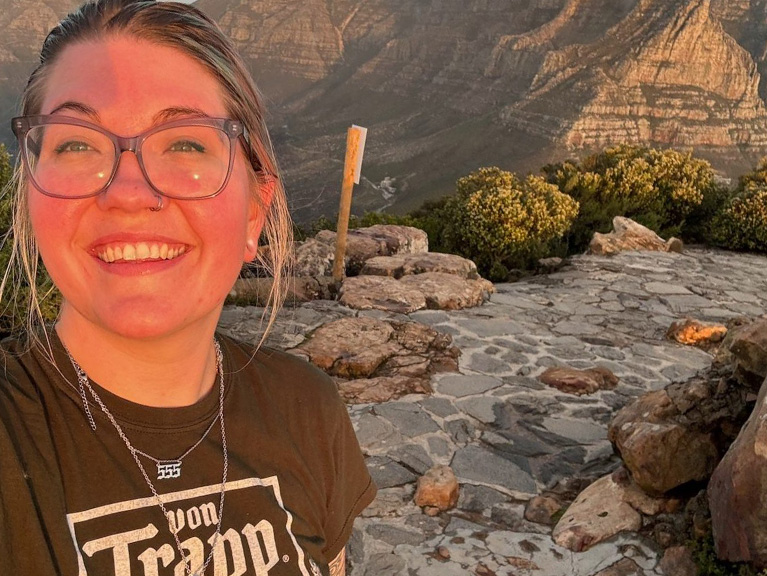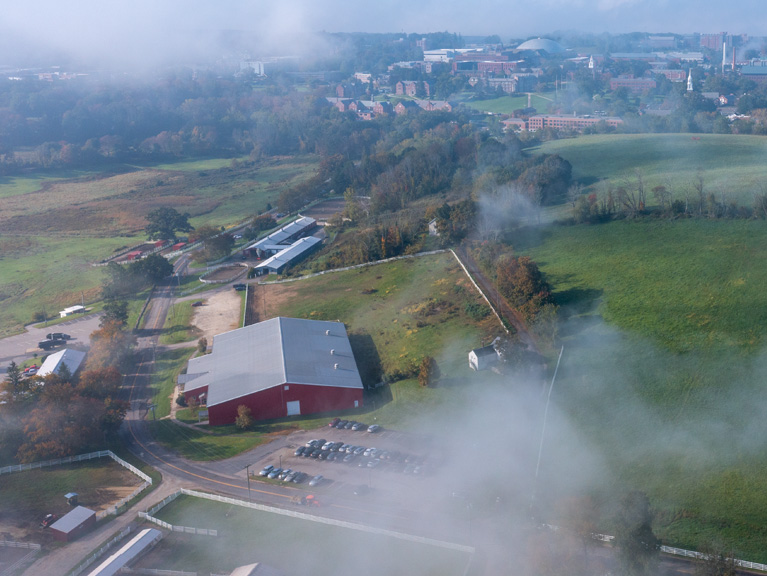
Extension Express
Summer 2024
- Extension Express
- Summer 2024
Serving Connecticut
Extreme Weather Preparedness
Connecticut sees an increasing number of extreme weather events. Extension has research-based outreach education to help residents, farmers and communities reduce the impact of emergencies and disasters. Significant flooding in 2023 and again this summer is a challenge for residents statewide, and we have resources available for flooding in particular at s.uconn.edu/flooding. Although it is impossible to plan and prepare for every potential situation, there are steps that help residents, businesses, and communities increase their resilience before, during, and after they shelter from a storm. View our resources.
Intern Spotlight: Sarah Frances
Sarah Frances is helping spread the word about the many UConn Extension programs that help communities in Connecticut as an intern this summer. Through her internship, Frances is creating a series of video interviews with several UConn Extension professionals. The interviews highlight the ways in which UConn Extension works with vulnerable communities throughout the state.
“What we’re trying to do is get information about why Extension is so important. We want to get the word out about what Extension is and let people know about some of the programs they can access,” Frances says.
The video interviews will highlight programs in urban forestry, 4-H, water resources, community sustainability and resilience, and more.
4-H Sparks Career Exploration for Tahlia Watson
Career sparks come from people, experiences, and programs, including UConn 4-H. For Tahlia Watson of Bloomfield, Connecticut, that spark was joining 4-H and participating in animal projects, leadership, and civic engagement programs.
“I always liked animals and have a lot of pets, but never thought of it as a career until I joined UConn 4-H and saw everything else that’s possible besides just being a veterinarian or working with therapy animals. I thought animals were just a hobby before 4-H.”
The rising senior at Northwest Catholic High School is applying to the animal science program in UConn’s College of Agriculture, Health and Natural Resources. But she’s not declaring as a pre-veterinarian major right away. Instead, Watson plans to earn her degree and then explore various animal science career paths before selecting one.
Answers You Can Trust with Extension Fact Sheets
UConn Extension launched this fact sheet page in March 2024 and is continuing to add publications. The purpose is to provide information on topics and issues our audiences are facing. Each fact sheet is reviewed by a subject-matter expert and then published here. All fact sheets undergo a mandatory review every five years. Fact sheet categories include aquaculture, climate adaptation and resiliency, commercial turfgrass and landscaping, crop production, equine, food, health and wellness, home and garden, land use and planning, and livestock production. Browse our fact sheet library.
Extension Programs Promote Civil Discourse
One of the roles UConn Extension programs provide is promoting civil discourse and building social capital. Extension professionals work on these initiatives across program areas, from our Land Use Academy participants to urban and community forestry and 4-H youth development. The National Council for the Social Studies defines civil discourse as "a conversation in which there is multiple airing of views," and "being respectful of the other person and his or her views."
Civil discourse is important because it helps foster diversity, equity, inclusion, and justice, helps us understand that there are multiple truths and paths forward, and helps us respect and understand differing perspectives. UConn Extension professionals trained with the Initiative on Campus Dialogues, part of the UConn Humanities Institute, in the Everyday Democracy program, and others, and implement the core practices in our programs.
The tenets of civil discourse that UConn Extension embrace include:
- Evaluating our own behavior and goals.
- Purposefully creating a welcoming environment.
- Listen to understand. Allowing space for others to speak, and waiting to speak.
- Identifying areas of common interest.
- Separating facts from opinions.
- Asking questions to understand.
These tenets were adapted from the United States Courts.



